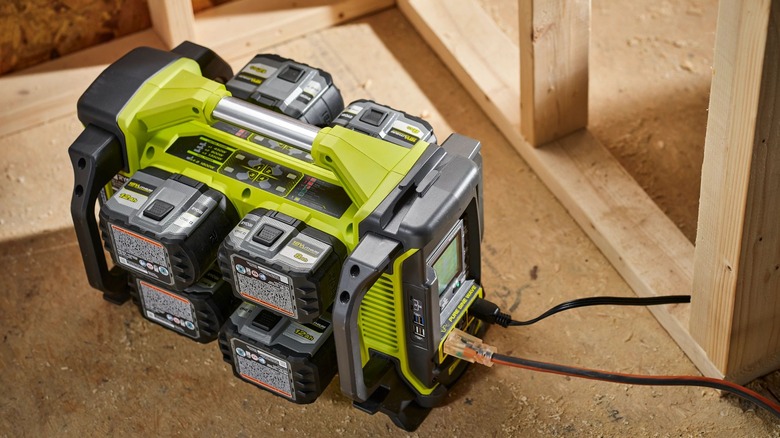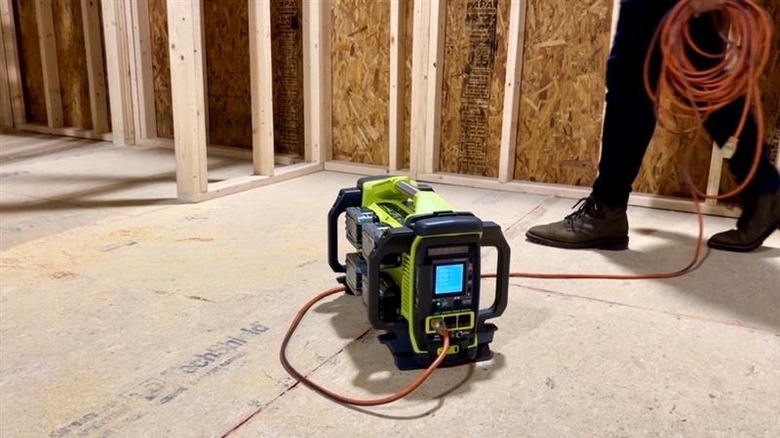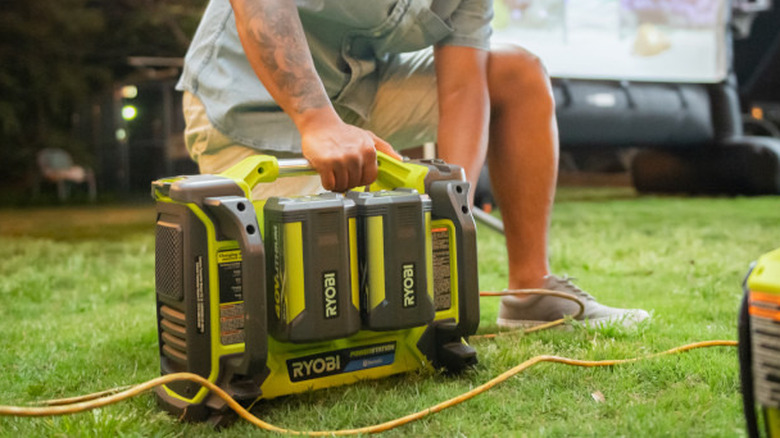Are Power Stations For Your Tools Worth The Price, Or Just An Overpriced Gadget?
Utilizing battery-powered tools instead of gas-powered ones affords you a variety of conveniences, including generally quieter operation, no fumes in your face, and safe indoor usage. The only real downside to battery-powered tools is that, unlike a quick gas fill-up, you need to give them time to charge back up between uses. This can be a little frustrating if you're in a bout of lengthy handiwork and don't really have time to be twiddling your thumbs, waiting for the battery to charge.
In such a situation, many hardware brands like Ryobi offer power stations that can be used with their various battery-powered offerings. These power stations can sequentially supercharge branded battery packs to ensure that you have a near-constant flow of juice for your tools. The obvious trade-off is that these power stations tend to be very expensive, with prices hovering around $1,000 at the minimum and as much as $3,500 at the maximum. The question, then, is whether investing in a power station is worthwhile if tool charging is the only thing you will be using it for.
Not great for just tools
If we're specifically asking whether or not a power station is a worthwhile investment for exclusively charging up power tools, then the answer is "not really." While supercharging multiple battery packs at once sounds really convenient, you could accomplish that same goal with a handful of standalone battery chargers for substantially less money. If you're only using one tool at a time, you could just have one battery pack charging in its cradle while you use another pack, then swap them when the latter runs empty.
Perhaps the only circumstance where a power station would be good for handiwork would be in the midst of an active worksite, where there are few active outlets, and it's not safe to wander around in search of a fresh battery pack. In this hyper-specific circumstance, a power station keeping your batteries warm might be beneficial, but whether or not said hyper-specific circumstance would warrant a $1,000 investment is something you'd have to decide for yourself.
Better uses
Rather than charging up power tools, power stations are better utilized as short-term external power sources. They're good for emergency power outages in your home or charging up small devices while on a camping trip, drawing power from the attached battery packs rather than charging them from a wall outlet. In these circumstances, especially the emergency ones, a $1,000 investment is a lot more sensible, as it's an investment you're making in the interest of your and your family's safety and convenience.
Power stations are also an excellent investment for emergency power if you live in an apartment or don't have much storage space. Not only are they generally smaller than gas-powered generators, but the lack of gas fumes means they're safe to operate in confined, unventilated quarters. They may not be able to power your entire house, but they can charge your phone, turn the TV on for a while, and so on.


